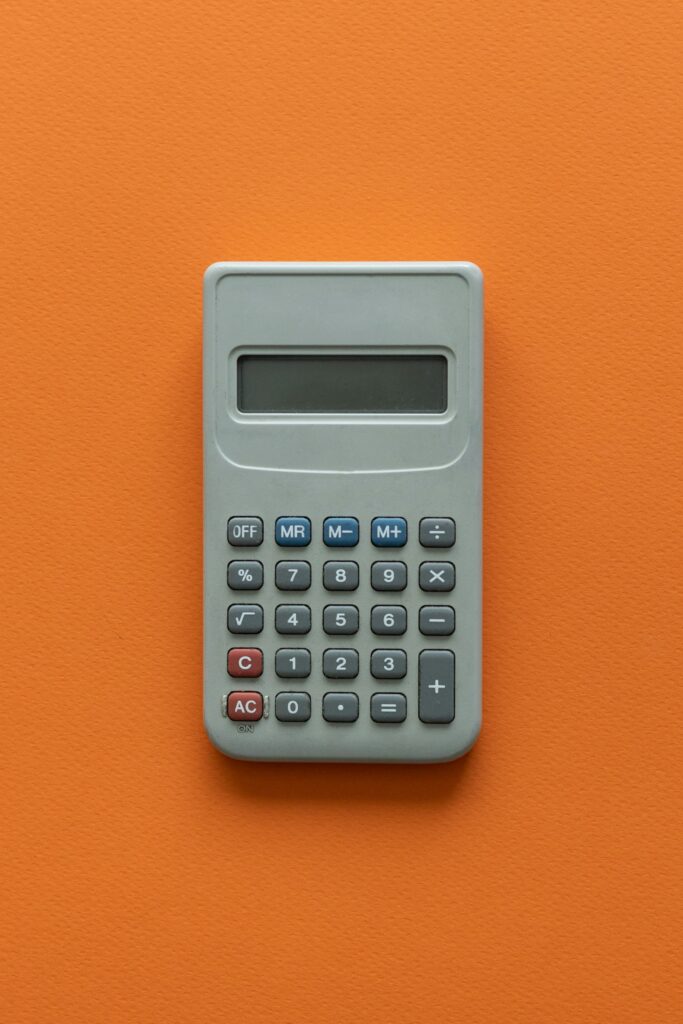How to Deal with Aggressive Debt Collectors: Tips for Negotiation
Debt collectors can be intimidating, especially when they use aggressive tactics to pressure you into paying what you owe. Many people find themselves unsure of their rights and overwhelmed by the situation. But fear not—understanding your options can help you navigate this tricky landscape with confidence. In this post, we’ll break down some common myths about debt relief, discuss various strategies such as debt settlement, consolidation, and Debt Management Plans (DMP), and provide practical tips for negotiating with collectors.
Love our content? Show your support by following us — pretty please!🥺
FOLLOW ON PINTEREST
Hi! I’m Kate, the face behind KateFi.com—a blog all about making life easier and more affordable.
Understanding the Myths About Debt Relief
What You’ll Learn on the Call
- Estimated timeline and monthly payment range
- How credit may be affected in the short term
- What documents to gather to move faster
Not available in IL, KS, OR, TN, UT, WV.
When it comes to debt relief, misconceptions abound. Let’s clarify these myths to empower you as you deal with debt collectors.
Myth 1: You Have No Rights Against Debt Collectors
Fact: The Fair Debt Collection Practices Act (FDCPA) protects consumers from abusive debt collection practices. Collectors cannot threaten you, call at odd hours, or harass you. Knowing your rights is crucial.
Myth 2: Paying Off the Debt Immediately Will Solve Everything
Fact: While paying off your debt can relieve stress, it doesn’t guarantee that your credit score will bounce back immediately. Additionally, making a lump sum payment can deplete your savings. Assess your overall financial situation before acting.
Myth 3: Debt Settlement Will Ruin Your Credit Forever
Fact: Debt settlement does have an impact on your credit, but it may not be as severe or permanent as you think. Many people rebuild their credit after settling debts, especially if they manage their finances responsibly moving forward.
Myth 4: Consolidation is the Only Way to Manage Debt
Fact: Debt consolidation is one option among several, including debt settlement and DMPs. Each option has its pros and cons. The right choice depends on your financial situation.
Myth 5: All Debt Relief Options Are the Same
Fact: Each debt relief method has its unique characteristics. For instance, debt settlement involves negotiating a lower amount, whereas DMPs focus on a structured repayment plan. Understanding these differences will help you choose wisely.
Myth 6: If I Ignore Debt Collectors, They’ll Go Away
Fact: Ignoring debt collectors usually backfires. They may escalate their tactics, which can include legal action. It’s better to address the issue head-on and know your rights.
Myth 7: Bankruptcy is the Only Option Left
Fact: While bankruptcy can be a solution for some, it’s not the only route. Many alternatives exist, and exploring options like debt settlement or DMPs may provide a better fit for your circumstances.
Debt Relief Strategies: Settlement, Consolidation, and DMP
Understand pros/cons of settlement vs consolidation vs DMP for your exact mix of debts.
Not available in IL, KS, OR, TN, UT, WV.
Knowing the myths can help you sift through your options. Let’s dive deeper into three popular strategies: debt settlement, consolidation, and DMPs.
Debt Settlement
Who Should Choose This?
If you’re in a position to make a lump sum payment that is less than the total amount owed, debt settlement might be the right choice. This strategy involves negotiating with creditors to accept a smaller amount as payment in full.
Pros:
- Can significantly reduce the amount you owe.
- Provides a quicker path to being debt-free.
Cons:
- May negatively impact your credit score.
- Requires you to be able to save a substantial amount upfront.
Debt Consolidation
Who Should Choose This?
If you’re juggling multiple debts with varying interest rates, debt consolidation can simplify your payments. This option involves combining several debts into one, typically at a lower interest rate.
Pros:
- Simplifies monthly payments.
- May lower your overall interest rate.
Cons:
- Does not reduce the total amount owed.
- You may incur additional fees depending on the method of consolidation.
Debt Management Plans (DMP)
Who Should Choose This?
If you have consistent income but struggle to keep up with multiple payments, a DMP through a credit counseling agency can help. This plan allows you to make a single monthly payment that the agency distributes to your creditors.
Pros:
- Structured plan helps you pay off debts.
- Can reduce interest rates and fees.
Cons:
- You may need to close your credit cards, which can impact your credit utilization ratio.
- A DMP usually lasts 3-5 years.
Quick Comparison Table
| Strategy | Reduction of Amount Owed | Impact on Credit | Payment Structure |
|---|---|---|---|
| Debt Settlement | Yes | Negative | Lump sum payment |
| Debt Consolidation | No | Neutral | Single monthly payment |
| DMP | No | Neutral | Structured monthly payment |
Practical Tips for Negotiating with Debt Collectors
Lower Your Unsecured Debt
If you have $5,000+ in credit card or personal loan debt, a free consult can review options like settlement or hardship plans.
- One-on-one call to review your debts and goals
- See potential monthly payment reductions
- No obligation to enroll
Not available in IL, KS, OR, TN, UT, WV.
If you’re facing aggressive debt collectors, having a strategy can make all the difference. Here are some practical tips:
Gather Necessary Documents
Before you start negotiations, gather essential documents:
- Account statements
- Any correspondence from collectors
- Proof of income
- Budget sheets that outline your monthly expenses
Having these documents handy will speed up the negotiation process and show your willingness to cooperate.
Create a Script for Negotiation
When speaking to debt collectors, it’s helpful to have a script. Here’s a basic outline:
- Greet the Collector:
“Hello, my name is [Your Name]. I’m calling regarding my account.”
- State Your Situation:
“I’m currently facing financial difficulties and am trying to understand my options.”
- Ask for Verification:
“Can you please provide me with details about the debt and your agency’s right to collect it?”
- Negotiate:
“I’d like to propose a settlement of [Your Offer]. Can we agree on this?”
- Document Everything:
“Thank you for your time. Can you confirm our agreement in writing?”
Stay Calm and Firm
Debt collectors may use pressure tactics. Stay calm, and don’t feel rushed to agree to a payment plan. You have the right to negotiate terms that fit your financial situation.
What Happens to Your Credit Score?
Many debt relief options can impact your credit score, especially debt settlement and DMPs. Here’s a brief overview:
- Debt Settlement: This will generally reflect negatively on your credit report, but if you follow up with responsible credit behavior, the damage can be minimized.
- Debt Consolidation: Usually has little to no impact on your credit if you make your payments on time.
- DMP: Since you’re making regular payments, your credit score may not see significant negative impacts.
The Path Forward: Getting Professional Help
While self-navigating these waters is possible, sometimes, professional help can offer tailored solutions that fit your needs. At KateFi, we offer free consultations to review your options and find the best debt relief strategy for your situation.
✅ See If You Qualify for Debt Relief
Conclusion
Dealing with aggressive debt collectors is challenging, but armed with the right knowledge and strategies, you can effectively manage your situation. Remember, you have options—whether it’s debt settlement, consolidation, or a DMP. Each choice has its benefits and downsides, so make sure you weigh them carefully.
When in doubt, consider reaching out for professional guidance. Contact KateFi today for a free consultation, and let’s review your debt relief options together.
✅ See If You Qualify for Debt Relief
Important: This content is for education only—not legal, tax, or financial advice. Results and eligible programs vary by situation and state. Fees apply if you enroll and complete a program. Debt relief can affect credit; missed payments may lead to collections/lawsuits. Not available in IL, KS, OR, TN, UT, WV.
✅ See If You Qualify for Debt Relief
Now is the time to take control of your financial future. You deserve to find peace of mind and the path to a debt-free life!






















